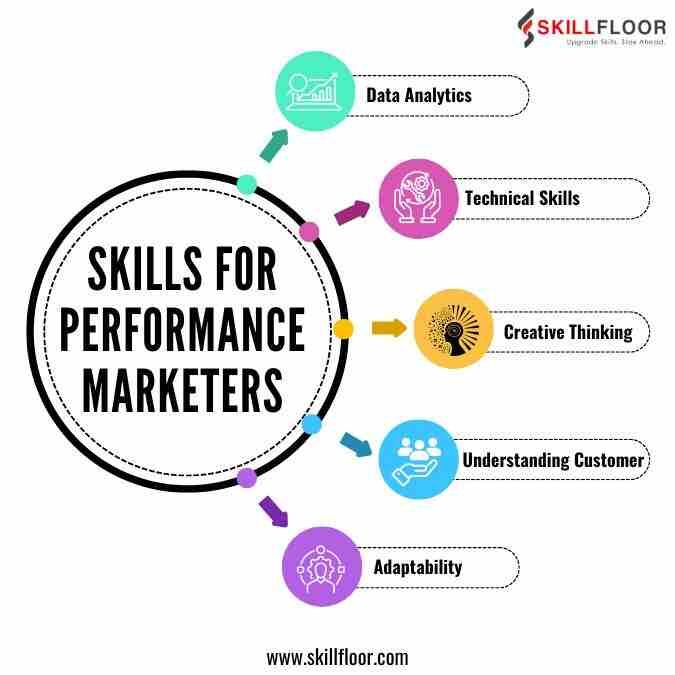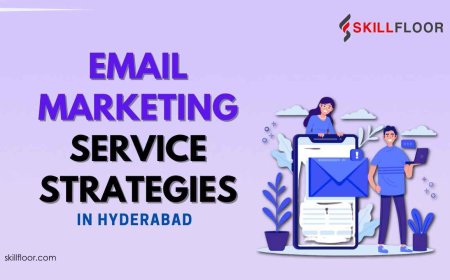The Future of Performance Marketing Careers
Discover the future of performance marketing careers. Explore emerging trends and job opportunities in digital marketing.

The future of Performance marketing careers is changing quickly due to advancements in digital technology and shifts in consumer shopping habits. Companies increasingly prioritize data-driven strategies, necessitating marketers to acquire new skills to remain competitive. Artificial intelligence (AI) and machine learning are now part of Digital marketing. They help make campaigns better and reach the right people faster.
To successfully measure campaign effectiveness, Performance Marketing Careers must now have a strong understanding of analytics and metrics. As SEO, PPC, and social media marketing continue to dominate the online advertising scene, these skills become increasingly important. Furthermore, the ability to use big data for predictive analytics and customer insights is becoming an important aspect of performance marketing responsibilities.
Looking ahead, the demand for skilled Performance Marketing Careers will only grow as businesses seek to improve their online presence and client engagement. Those who can effortlessly mix traditional marketing strategies with innovative digital techniques will be at the forefront of this growing field, determining the future of how businesses interact with their audiences.
Key Trends Shaping the Future
1. AI & Machine Learning
Artificial intelligence and machine learning are transforming performance marketing. These technologies allow marketers to examine massive volumes of data in real time, accurately forecasting customer behavior and optimizing advertising. Future performance marketers will need to use AI to develop more tailored and efficient marketing tactics.
2. Data Privacy and Compliance
With the implementation of rules such as GDPR and CCPA, data privacy has become a critical issue. Marketers must manage these restrictions to guarantee compliance while also using data for targeting and personalization. Future performance marketing employment will necessitate a thorough awareness of data privacy regulations and ethical data management methods.
3. Omnichannel Marketing.
Consumers today interact with brands through a variety of channels, including social media, email, and in-store encounters. Omnichannel marketing seeks to deliver a cohesive customer experience across all touchpoints. Performance marketers will need to create strategies that connect several channels to ensure a consistent and engaging consumer experience.
4. Voice Search & Smart Assistants
Voice search and smart assistants such as Alexa, Google Assistant, and Siri are gaining popularity. As voice search becomes more prevalent, performance marketers will need to tailor their strategy for voice queries and conversational AI. This includes creating voice-search-friendly content and adverts, as well as using voice analytics to gain insights.
5. Influencer and Affiliate Marketing
Influencer and Affiliate marketing are emerging as successful performance marketing tactics. Influencers and affiliates can generate considerable attention and conversions by providing genuine endorsements and targeted promotions. Careers in this field will require you to manage relationships with influencers, negotiate deals, and track performance indicators.
Skills Needed for Performance Marketers
As the field of performance marketing evolves, so do the skills required to succeed. Here are some of the essential skills that future performance marketers will need:
1. Data Analytics: Performance marketers must be skilled at data analytics. Understanding how to understand data, spot trends, and make data-driven decisions will be critical for optimizing campaigns and improving outcomes.
2. Technical Skills: Technical skills, including an understanding of SEO, PPC, programmatic advertising, and CRM systems, will be required. Marketers should be conversant with campaign management and measurement platforms such as Google Analytics, SEMrush, and HubSpot.
3. Creative Thinking: While data and technology are important, creativity is still a necessary component of performance marketing. Creating captivating content, engaging ad creatives, and inventive campaigns can help you attract the audience's attention and increase conversions.
4. Understanding Customer Behavior: A thorough understanding of customer behavior and psychology will allow marketers to develop more focused and individualized campaigns. This includes studying customer journeys, segmenting audiences, and adapting communications to appeal to diverse groups.
5. Adaptability and Lifetime Learning: The digital marketing world is ever-changing, therefore performance marketers must be agile and dedicated to lifelong learning. Keeping up with the latest trends, techniques, and technology can help marketers maintain their competitiveness and effectiveness.

Potential Career Paths in Performance Marketing
The future of performance marketing careers is diverse and offers numerous opportunities for specialization. Here are some potential career paths:
-
Performance Marketing Manager
Performance Marketing Managers are responsible for the planning, execution, and optimization of performance marketing campaigns. They collaborate closely with teams to ensure that campaigns accomplish objectives and generate ROI. This position necessitates exceptional analytical capabilities, strategic thinking, and leadership ability.
-
SEO/SEM Specialist
SEO (Search Engine Optimization) and SEM (Search Engine Marketing) specialists work to increase a website's exposure in search results. They evaluate keywords, optimize content, and manage sponsored search campaigns to generate both organic and paid traffic.
-
Content Marketing Specialist
Content Marketing Specialists generate and manage content that entices and engages certain audiences. This encompasses blog entries, videos, infographics, and social media content. They work to match content with performance marketing objectives, resulting in increased traffic and conversions.
-
Data Analyst
Data analysts in performance marketing examine campaign data to generate insights and recommendations. They contribute to the optimization of marketing plans by recognizing patterns, assessing performance, and forecasting future outcomes. This profession necessitates strong analytical and technical abilities.
-
Affiliate Marketing Manager
Affiliate Marketing Managers build and manage connections with affiliate partners. They manage affiliate programs, negotiate contracts, and monitor performance indicators to ensure that affiliates generate useful traffic and conversions.
-
Influencer Marketing Specialist
Influencer Marketing Specialists identify and work with influencers to market their products and services. They manage influencer connections, negotiate contracts, and assess the efficacy of influencer initiatives on brand visibility and revenue.
The future of performance marketing employment seems promising and full of opportunity. As technology advances, performance marketers must keep ahead of the curve by adopting new tools, developing their abilities, and adjusting to changing consumer behaviors. With the appropriate combination of creativity, analytical abilities, and technical expertise, aspiring performance marketers can carve out lucrative and fulfilling careers in this dynamic industry. The future of performance marketing careers will be defined by the integration of AI and machine learning, a focus on data privacy and compliance, the rise of omnichannel marketing, the expansion of voice search and smart assistants, and the growing importance of influencer and affiliate marketing. Performance marketers may succeed in this constantly shifting field by honing their abilities and staying current on industry trends.






























































